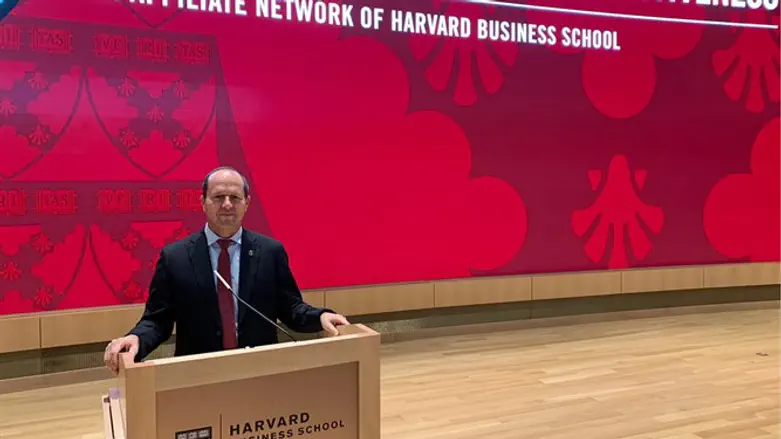
Amidst the political drama taking place back in Jerusalem, Member of Knesset Nir Barkat presented this week at a special conference at Harvard Business School. His presentation focused on the success of economic models during his time as Mayor of Jerusalem. MK Barkat had been invited by Professor Michael Porter to present to some 150 economics professors from around the world at an annual conference focused on Macroeconomics of Competitiveness.
In his remarks, MK Barkat stressed the unique status of Jerusalem as a city defined both by both the ancient and the modern. “In recent years, Jerusalem has become a source of great Israeli pride as an example of economic growth in a wide variety of areas including tourism and the tech sector and I believe that the models we have advanced in the city can be applied all across Israel and around the world.”
One of the key messages Barkat proposed in his presentation was to invest more heavily in Israel’s periphery- a model that he has been working to develop in cooperation with Professor Porter. He further advanced his vision for increased economic cooperation with the Palestinian workforce via a plan to develop increased ‘industrial clusters’ throughout Judea and Samaria along the lines of those which already exist in places like Barkan and Mishor Adumim.
“Everywhere in Israel can be ripe for growth if we invest and budget properly while taking advantage of local resources,” Barkat said. “We need to start thinking long-term about how to expand well beyond our current urban centers because in a short amount of time these areas won’t be able to handle the burden of growing populations.”
The conference was attended by academics from around the world, including many from Arab countries.
“This forum provides me with considerable pride by being able to share my personal vision for how Jerusalem’s success can benefit other nations and regions,” he said. “Despite any political chaos which is taking place back home, our work in sharing Israel’s message to the world must continue and we need to explore relevant partnerships and planning that will define our growth for many years to come.”